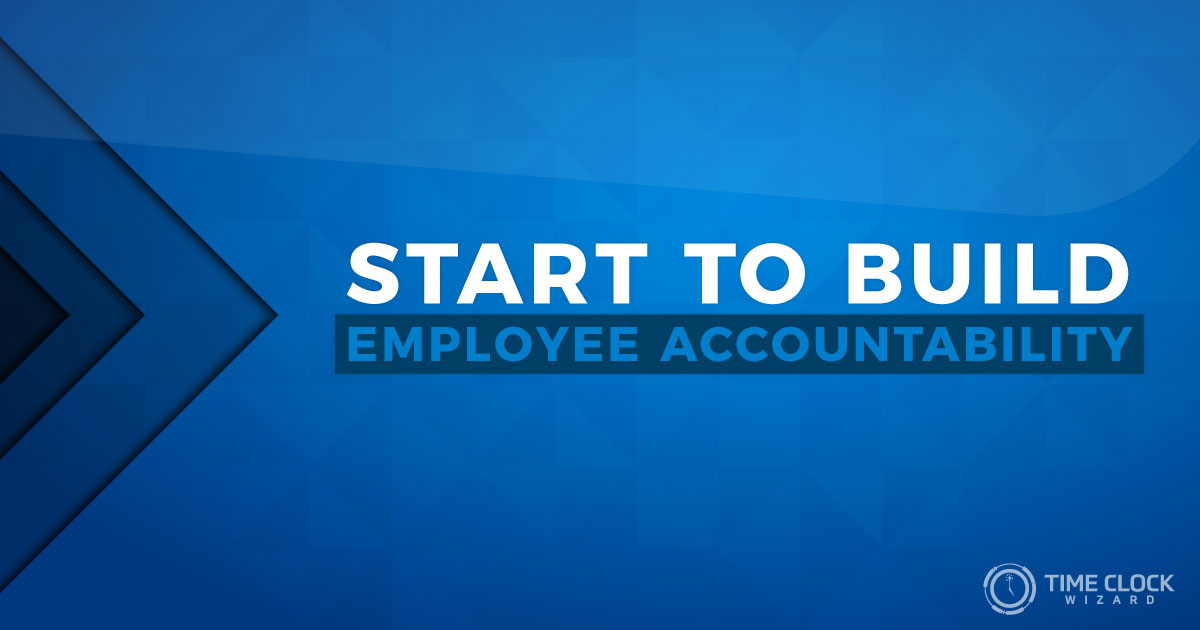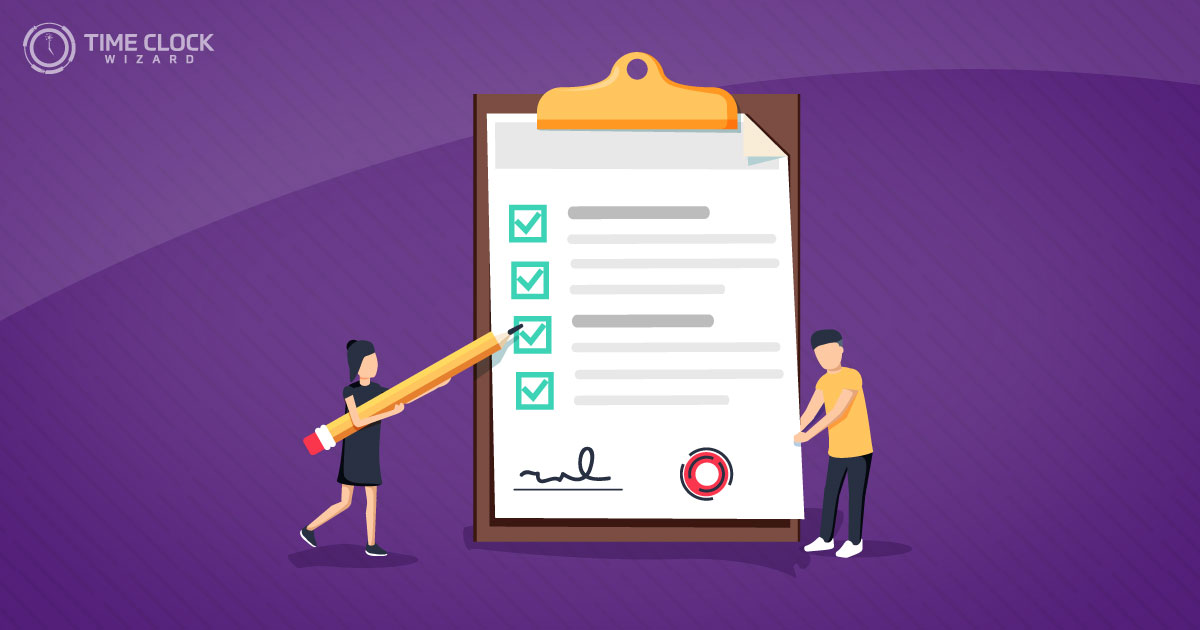
Trust can only be formed when team members are consistent and demonstrate a culture of accountability in the workplace. It is important to trust a team to do what it said it would do. With that, each employee in the team is accountable for his or her actions and results generated. One person’s shortcomings can turn into that person’s delay. This, in turn, becomes the entire team’s delay— since employees depend on each other to contribute their part of their role in the team system.
In this article, learn more about the importance of employee accountability in the workplace.
What Does Leadership Accountability Look Like?
Leaders of a team are particularly responsible for demonstrating a culture of accountability, because without proper leadership and honesty, factual information will not be transferred. The proper leader is vital for a functioning business—the leader can make or break a business. Leaders set an example for the employees as a role model. Employees look to the leader for direction. An inappropriate presentation of authority will produce a bad team. Integral information is necessary in deciding how to progress. So, the leader is accountable for the team’s actions. This makes leaders, especially, answerable. Some tips for leaders of a team to exercise accountability are:
Be Clear With Expectations
Defining and clarifying the roles of each of the teammates and what they are expected to achieve prevents confusion. Distributing roles to each member also makes clear what is expected of each individual teammate. This safeguards members and that they are not responsible for each and everyone else’s roles. For example, if one particular employee is especially good with communicating, he or she may be successful at managing other employees.
Work on Giving Feedback
Leaders of a team are expected to give feedback. They are responsible for directing the team and correcting employees who need the help. Not giving feedback is one of the most discouraging things a leader could do to his or her employees. This sends them the message that the leader does not care about them or their work. Being ignored is worse than receiving negative criticism. When employees are used to receiving feedback on their work, receiving tough feedback is much easier for them. Good feedback shows the employees that the leader does sincerely care and wants to help. Also, be clear. Messages should be delivered accurately and not vaguely.
Set Landmarks
A culture of accountability can be shared amongst everyone in a team when the leader sets milestones. The entire time will feel obligated and will want to deliver the goals and stay dedicated. Praise those who meet their goals. Even the littlest of recognition can go far—in turn, motivating employees and feeding their drive to succeed. If there is a lack in consistency of accountability, implement SMART goals. SMART stands for:
S – Specific
M –Measurable
A –Attainable
R –Relevant
T –Timely.
Goals should be practical and specified clearly. Have reasonable expectations of employees and dictate appropriately. Analyze and track the results to project for the future. Tracking progress to stay motivated keeps the morale of the workplace. Keep the relevance of the goal, retain control and make sure that it measures with other goals. A clear message of what is to be set forth is done by keeping track of time and making an agenda. Whether keeping track of what needs to be done by the hour, day, month, the upcoming six months, or year, gives everyone a clear idea of what is expected of them and how fast they have to work in order to effectively produce results. Setting SMART goals allow fluent communication between the leader and the team about what is expected of employees.
Be a Role Model
Each individual employee is empowered with a responsibility when supervisors ration out roles to each employee. They learn with experience, through failures and successes. Each experience is a learning experience, whether gaining an insight or learning what went wrong and how to prevent that situation from reoccurring. In a successful organization, each team member will be held accountable for learning from his or her record. This way, they identify and analyze these results to influence future predictions of projects.
Start to Build Employee Accountability
Culture of accountability in the workplace is proportioned with performance and commitment. Employee work ethic and reliability also factor into employee accountability. When an employee follows his or her words with action and accomplishes what he or she said would get done is, essentially, an employee’s accountability. Taking initiative and having integrity along with proactive communication keeps everyone in a team informed. Take responsibility for generating results—your own results.
Installing a central system of communication can increase employee accountability. Time Clock Wizard acts as a digital worker mimicking the role of human resource management. With Time Clock Wizard, managers can freely communicate and update employees with information. This includes shift changes, messaging and updated scheduled goals. Time Clock Wizard has these features that build a culture of accountability in the workplace:
1. Employee Time Clock
Employees can clock in and out with any device connected to the Internet through Time Clock Wizard. Supervisors can use a computer-based browser which conveys to them who has clocked in where. Employees can clock in and out from wherever they are.
2. GPS Tracking
Managers can monitor the team from a mobile device. Time Clock Wizard offers an online dashboard that can be viewed on any PC or device that connects to internet. With their GPS tracking, supervisors can track individual employees and vehicles from their fleet, see their routes as well as time spent on each site. Ensure a culture of accountability and integrity by preventing employees from clocking in and out for each other using the mobile clock-in with pictures of the employees.
3. Employee Scheduling
Supervisors can manage multiple locations and schedule employees from different locations of business all under one account. This application allows easy shift switch requests, and all information is in one place—on system.
Schedule report includes:
- Shift
- Name
- Time
- Job
- Location
This allows clear and free communication between supervisors and employees, ensuring clear responsibility of each individual’s task.
Lack of Accountability in the Workplace
Punctuality is ruined when there is a lack of accountability in a workplace. People recognize that the deadline is not actually the deadline, and do not take the schedule seriously. Tolerating missed deadlines and unfinished work enables this behavior. If tardiness is shown to have no consequences, mediocrity is presented as acceptable. The team suffers along with, ultimately, the workplace culture.
Basically, the lack of accountability in the workplace conveys the message that lower standards are acceptable. Employees may start building resentments towards specific employees who perform sub-par, because they have to correct the unfinished work.
Without addressing the problem employee, the rest of the employees may view it as favoritism and cause disengagement. This can, in turn, be demotivating for everyone.
Personal Accountability at Work
Holding people accountable is uncomfortable—it is a form of confrontation. Confronting someone about what he or she is doing wrong when giving feedback can make the person giving the feedback feel as though they are being mean. That is not the case. Issues do not resolve themselves. Instead, what are initially little issues start building into bigger issues.
Managers should think of ways to make a culture of accountability a habit. Consider anything the team should start doing, whether they are giving the appropriate amount of direction and feedback, whether they are giving help to employees who need it, and how to improve the way the team works together.
Setting expectations of employees and clearly defining those roles to the employees is vital. It allows managers to be more likely providing positive feedback. Assigning actions to team members and completing them with deadlines is a perfect and only way to hold each member of a team accountable.
How Are Accountable Employees Different?
Accountable employees are quick to recognize their mistakes and correct them with agility. They learn from experience. Also, accountable employees take responsibility for their actions rather than placing the blame elsewhere. They commit to a goal and keep their word, no matter how challenging. Accountable employees instill a sense of reliability in the company as a whole.
Hiring the right people who take responsibility creates a culture of accountability in the workplace. This makes the workplace more desirable with employee attention and retention. Every great product needs great material. When hiring, human resources generally looks for future employees according to their past behaviors. Some things employers may consider are:
- What types of jobs has this person had in the past?
- What did these job descriptions entail?
- Which skills would this person have had to exercise to take this role?
- Did they take up leadership roles in school or in past work experience?
- Did they take up leadership roles in unpaid organizations or volunteer work?
Start delegating work to particular accountable employees who make decisions that improve results. Giving certain employees authority over others can ensure good direction for the entire team. Carefully choosing which employee for which job according to skill and experience is what promises productivity and results.








